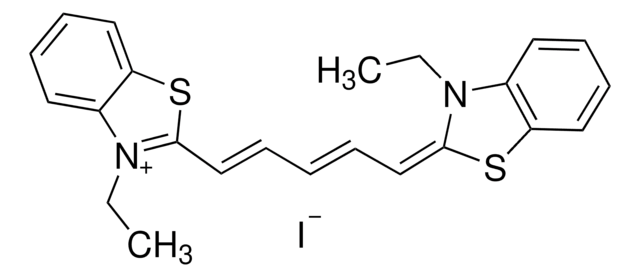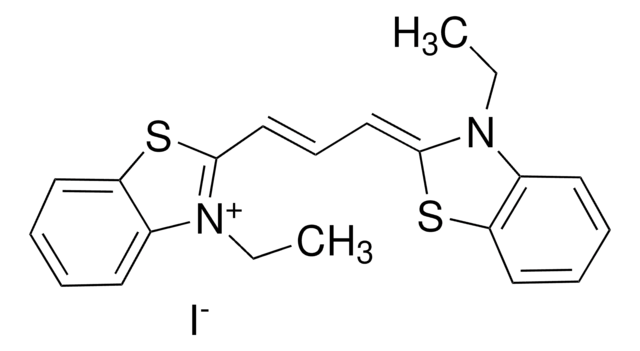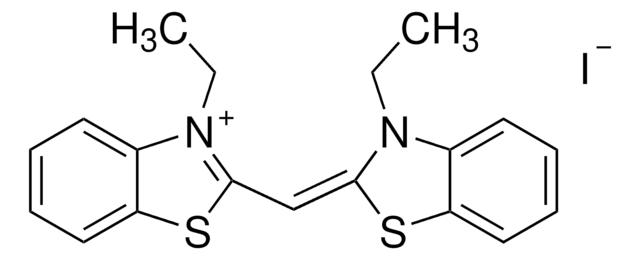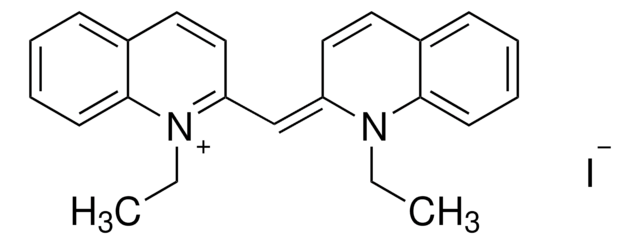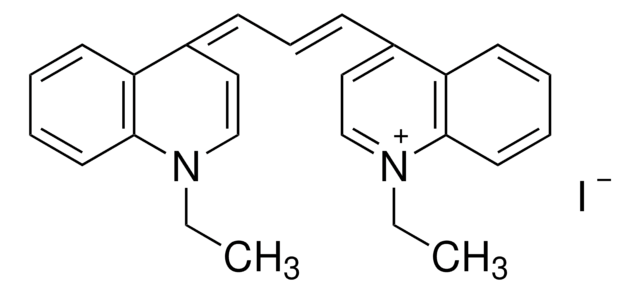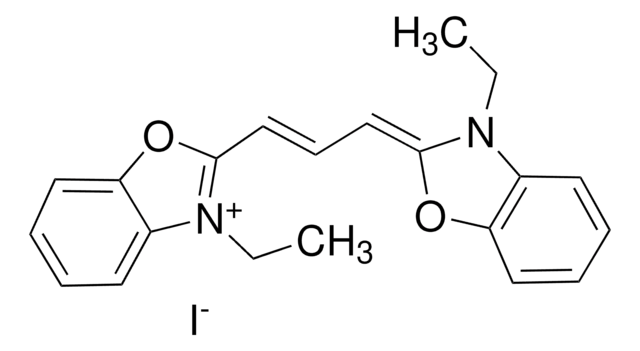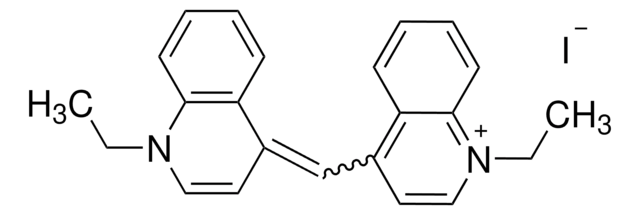381306
3,3′-Diethylthiatricarbocyanine iodide
99%
Synonym(s):
3-Ethyl-2-[7-(3-ethyl-2-benzothiazolinylidene)-1,3,5-heptatrienyl]benzothiazolium iodide, DTTC iodide, DTTCI, DiSC2(7)
About This Item
Recommended Products
Quality Level
Assay
99%
mp
211 °C (dec.) (lit.)
λmax
765 nm
SMILES string
[I-].CCN1\C(Sc2ccccc12)=C\C=C\C=C\C=C\c3sc4ccccc4[n+]3CC
InChI
1S/C25H25N2S2.HI/c1-3-26-20-14-10-12-16-22(20)28-24(26)18-8-6-5-7-9-19-25-27(4-2)21-15-11-13-17-23(21)29-25;/h5-19H,3-4H2,1-2H3;1H/q+1;/p-1
InChI key
OYVFJKVYVDYPFV-UHFFFAOYSA-M
Looking for similar products? Visit Product Comparison Guide
Related Categories
Application
Signal Word
Warning
Hazard Statements
Precautionary Statements
Hazard Classifications
Acute Tox. 4 Dermal - Acute Tox. 4 Inhalation - Acute Tox. 4 Oral - Eye Irrit. 2 - Skin Irrit. 2 - STOT SE 3
Target Organs
Respiratory system
Storage Class Code
11 - Combustible Solids
WGK
WGK 3
Flash Point(F)
Not applicable
Flash Point(C)
Not applicable
Personal Protective Equipment
Regulatory Listings
Regulatory Listings are mainly provided for chemical products. Only limited information can be provided here for non-chemical products. No entry means none of the components are listed. It is the user’s obligation to ensure the safe and legal use of the product.
JAN Code
381306-BULK:
381306-VAR:
381306-1G:4548173988245
381306-250MG:4548173988252
Choose from one of the most recent versions:
Already Own This Product?
Find documentation for the products that you have recently purchased in the Document Library.
Customers Also Viewed
Articles
Graphene is the building block for carbon nanomaterials with different dimensionalities.
Our team of scientists has experience in all areas of research including Life Science, Material Science, Chemical Synthesis, Chromatography, Analytical and many others.
Contact Technical Service